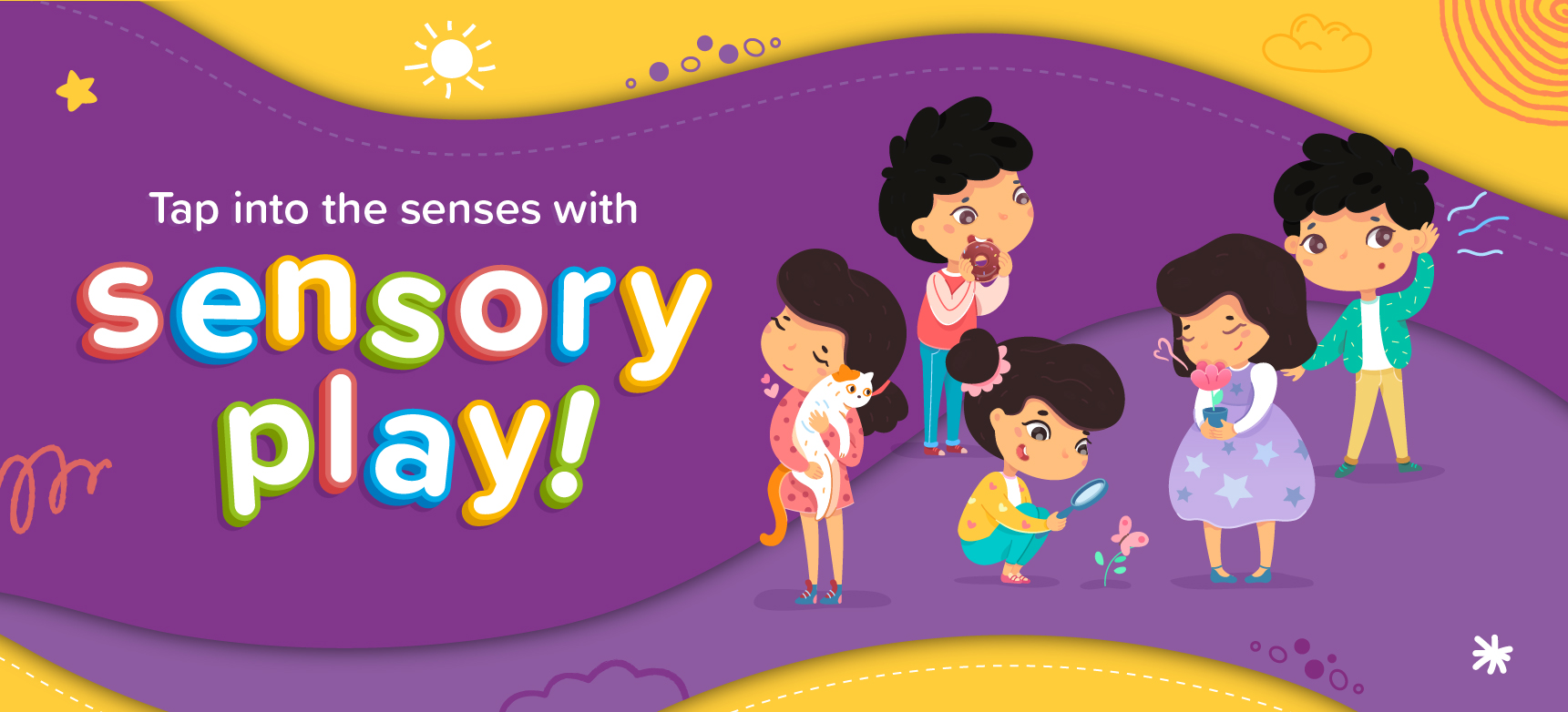
Sensory play is designed specifically to stimulate a child’s 5 senses – smell, taste, sight, touch and hearing. Sensory play involves exploration, investigation, and engaging in science-based experiences that develop a child’s language, social-emotional, and critical thinking skills.
The inclusion of sensory play activities in your child’s day-to-day schedule is easily attainable. Given below are some activities you can implement for each of the 5 senses.
Sensory play benefits your child in many ways and contributes extensively to their overall development. Let us discuss them in detail.
1. Develops vocabulary
As a child touch, smell, taste, hear and see different things, they learn to label what they encounter. Choosing a phrase to describe an event and naming an object becomes easier after every new experience. Make sure to introduce as many descriptive words as you can each time your child engages in sensory experiences.
2. Develops motor skills
Sensory bins are often included in a child’s development. It is an open container which contains various textured materials, like beads, marbles, sand particles, etc. Depending on the material in the bin, it introduces a child to different senses. It is a hands-on tool where they grasp the items in the bin, pick them up and place them in the correct order strengthening their motor skills. It also promotes mindfulness, increases attention span, and refines tangible senses.
If a child is less responsive to sensorial experiences, a sensory bin helps make them aware of their surroundings. This exercise also gives them an opportunity to learn about sharing with peers.
3. Develops learning skills
Sensory experiences establish the formation of new nerve pathways in the brain. It makes room for learning through explorations, trials and errors. In the course of it, they get equipped to solve complex problems and execute challenging tasks.
4. Improves memory
Retaining information that is related to their senses becomes easier. Even recalling information does not seem like a challenge. For example, getting the waft of a particular fragrance and identifying its source becomes easily possible for your youngster.
5. Makes them adaptable
Children are not hesitant to try out something new. But with continual sensory play activities, they are more likely to get acquainted with distinct tastes, flavours, smells and sights. If the experiences are fun, they will be more open to trying out new things.
Have you incorporated sensory experiences into your child’s daily routine? If yes, do let us know which experiences you have integrated and how they benefited your child. Share your story in the comments section.
Coupling her love for children with a zeal for writing, Sonakshi pens down words to make even the smallest difference in the lives of young readers. She believes words are a powerful tool that, when used wisely, can bring about a positive difference. In her spare time, she likes to prop open a book, scribble poetry, or go out on long walks for any stroke of inspiration!